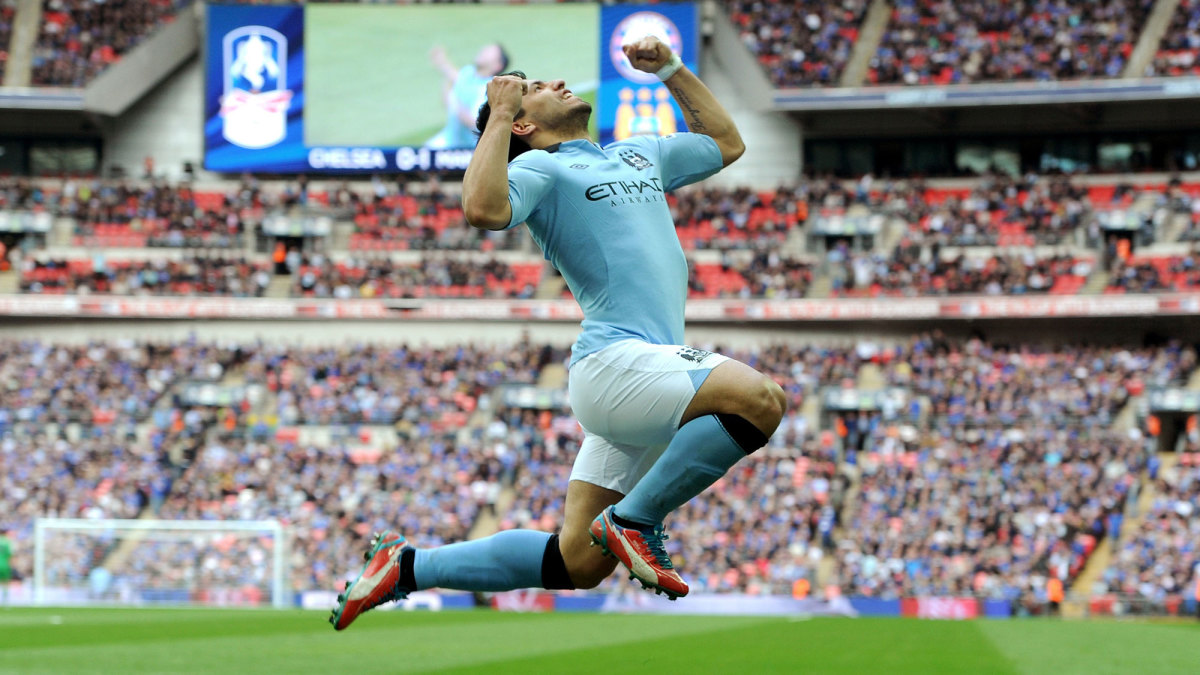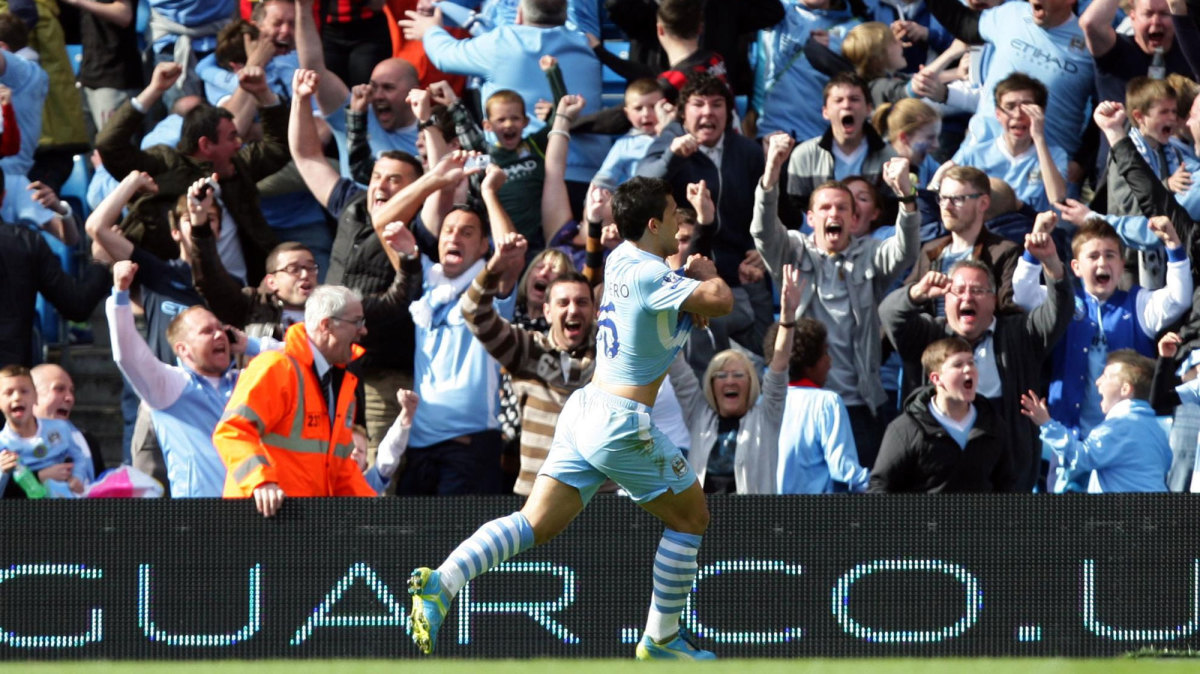Sergio Agüero's Place in Premier League and Manchester City History

The news did not come as a great surprise. Sergio Agüero will be 33 in June when his contract expires. He has started only four league games this season. The shock would have been if Manchester City had offered him a new deal. As such, the club announced Monday that this season will be Agüero's last at the Etihad, with the Argentine forward moving to a new destination on a free transfer.
As potential suitors line up to sign one of the most consistent goalscorers in the history of the game (A move to Serie A, the natural home of the aging forward? A return to Atlético Madrid to partner with Luis Suárez in an enticing 30-something Rioplatense double act? Or an even more emotional return to Independiente in Avalleneda, where it all began for him as a 15-year-old?), the focus moves to his legacy. What did he mean for Man City, and just where does he rank among the Premier League's greatest strikers?
The first question is perhaps both more consequential and easier to answer. Agüero may be the greatest Man City player of all time. He has certainly played a more central role in the transformation of the club than any other footballer. Unless something very bizarre happens over the next two months, he will leave the club as the only man ever to win five league titles with City. He may also be part of the first City side to win the Champions League.
He is already the club’s all-time leading scorer (257 in all competitions) by a considerable margin. Eric Brook probably would have scored more had World War II not intervened, but if Agüero were to manage nine goals in all competitions before his departure, he would have scored more than 50% more goals than his next closest rival. His consistency is stupefying. Since 2007 he has scored in double figures in every season until this one. In his worst season for City (2012–13) he scored 17, the only time he has ever failed to reach 20.

The statistic always feels slightly false given it is only over the past couple of decades it’s been recorded, but only three players have registered more assists for City than Agüero, and Raheem Sterling is within range. Journalist Richard Jolly, a master of the quirky statistic, observed that the last player in English football to match Agüero’s feat of scoring 28 goals in six consecutive seasons was Jimmy Greaves. Like Greaves, Agüero found himself playing for a manager who wanted more than just goals. Greaves could never satisfy his national manager, Alf Ramsey, in that regard, but Agüero adapted, and under Pep Guardiola became the leader of City’s press.
He also, perhaps most significantly, scored the most important goal in City’s history, the winner against QPR that clinched the 2011–12 league title in the final seconds of the season. It wasn’t just his composure in drilling that shot low past Paddy Kenny—an absolute rejection of City’s image at the time as bottlers doomed to failure—but the fact that a few minutes earlier he had suggested to Mario Balotelli how they could break QPR down by playing closer together, an indication of both his game intelligence and his clarity of thought under pressure. That goal, more than any other on-field action, transformed City into the relentlessly successful club it is today.
“Sergio’s contribution to Manchester City over the last 10 years cannot be overstated," City chairman Khaldoon Al Mubarak said in a club statement, which also acknowledged that an Agüero statue will stand alongside those of fellow era-defining stars David Silva and Vincent Kompany outside the Etihad. "His legend will be indelibly etched into the memories of everyone who loves the club and maybe even in those who simply love football."

So where does he rank against other Premier League players? Only Alan Shearer, Wayne Rooney and Andy Cole have scored more Premier League goals, but all have done it at a slower rate and all had the advantage of playing all or the majority of their careers in England. Thierry Henry is the only other foreign player in the top 10.
Henry is perhaps the only player who really stands comparison, not in a qualitative sense, but in the impact he had on a single club. Manchester United fans might argue for Eric Cantona, and perhaps there is a case in the way he inspired a team notorious for failure to become serial winners. But United had a past glory to which to return and, despite its league drought, had won three FA Cups in the decade before his arrival. City was a club that, until supercharged by the arrival of Sheikh Mansour in 2008, had not won a trophy since 1976.
Agüero is one of the greatest players in Premier League history, almost certainly the best non-European and perhaps the best foreigner. He’s been absurdly consistent and scored one of the most memorable goals the competition has known. But more than that, he has fueled the transformation of Manchester City from shambolic joke to ruthless superclub.
